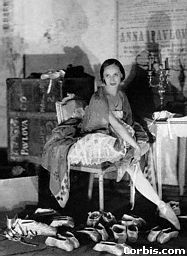 |
| The world of Anglo-India vanished on August 15th 1947, when a new nation was born. As India threw off the chains that had bound them to centuries of colonial rule, its people strode proud and free into the future, the British packed their bags, their polo sticks, their loots and their memories and went home. Among those left behind were thousands of people of mixed European and Indian descent, who traced their English, French, Dutch or Portuguese ancestry back centuries. At that time, few women were considered delicate and never dared venture the long sea voyage from the soft green countryside of England to the sweat, hea?t disease and poverty ridden country of Hindoostan. As a reult the officers and clerks were encouraged to marry local Indian women and their children carried no stigma of mixed blood in those far-off days. |
| Neither the British nor the Anglo-Indians made any attempt at appreciating Indian music, art, dance, literature or drama. The "natives" were seen as idol worshippers, and not particularly clean ones at that, with their habits of blowing their noses, spitting and defecating in public. Not to mention eating with their fingers while sitting cross legged on the ground. Many Anglo-Indians, apprehensive of changes that would surely come with India's independence, chose to leave India. The 1950s and 1960s saw a steady stream of departures as about 150,000 Anglo-Indians, seeking wider horizons and better job prospects, emigrated to Australia, Britain, Canada, the U.S.A. and New Zealand, |
| For all that, Anglo-Indians were, and still are, a fun-loving lot. They have always had the capacity to thoroughly enjoy themselves at a dance, a sing-a-long session or a party. I am proud to belong to this mixed disent who share the finer qualities of both worlds. Though a social outcast in todays community, it is with pride in their voices, holes in their pockets, heads held high and sports on their side, that the Anglo Indians in India ( atleast from the south where I come from) still proudly claim their heritage. I hope this culture lives long enough for my children to see the richness of the heritage value |
| Anglo Indian History |
| Later, however, with the construction of the Suez Canal in the 19th century, the travel time between the two countries was greatly reduced and women no longer hesitated to travel from England to join husbands or seek marriage prospects among British army and the civil service officers. They brought with them all the class snobbery and offspring of mixed descent came to be regarded with disdain. The Anglo-Indians, were more "Anglo" than "Indian". Their mother-tongue was English, and so was their religious upbringing, as were their customs and traditions. While most of them married within their own Anglo-Indian circle, there were many who continued to marry expatriate Englishmen. Very few, if any, married Indians. The same rigid social barriers that the British erected between themselves and the Anglo-Indians, also existed to isolate the Anglo-Indians from the vast majority of Indians. |